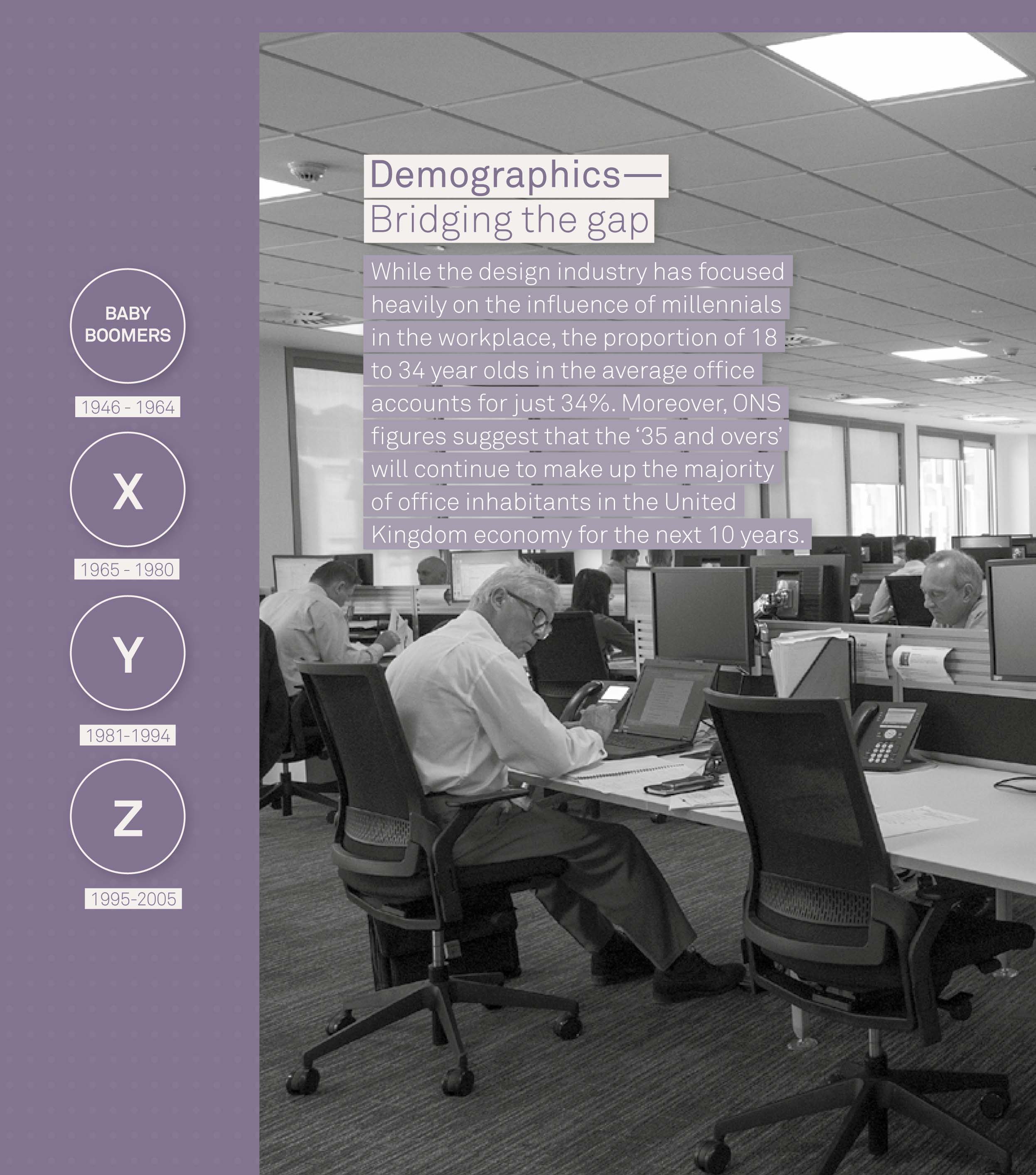


The second part of the series reveals the most important factor that differs us at work and what has to be considered in a new company or organization design.
7. 9. 2018
Given that every office is filled with individuals that have their own preferences and unique approach to the working day, Senator decided to commission a comprehensive survey of the UK’s office population that would evaluate the current approach to office design. The aim was to establish 'how we work', relating to tasks we undertake every day and how we differ individually.
The greatest insight was that the biggest influencers over preference are age and seniority. As an extension of this, there is a natural discord that has developed between the older generation – which is used to a territorial way of life – and the sharing economy that younger employees have become accustomed to.

While the design industry has focused heavily on the influence of millennials in the workplace, the proportion of 18 to 34 year olds in the average office has actually decreased by nine per cent, accounting for just over a third (34 per cent) of the workforce. Moreover, ONS figures suggest that the ‘35 and overs’ will continue to make up the majority of office inhabitants for the next 10 years, so we should be considering them first and foremost when analysing our findings.
Analysing the results of How We Work, it became apparent that, above all else, seniority (largely linked to age) and the individual’s position in an organisation dictated how they wanted to work. In comparison to clerical and administrative roles, when writing an email at a personal computer or presenting to a group, senior managers and directors were far more likely to have the confidence to adopt a more relaxed posture.
Clerical workers, on the other hand, were more likely to default to adopting the traditional posture associated with a task chair and desk. Tying in with this, they also picked desk level as the optimum height to operate at rather than perhaps being stood up, reclined or perching.
There was also much greater variation in senior staff’s willingness to experiment with posture – only when it came to sitting at a desk did they come in below the mean figure for reading an email on a personal computer.
However, with this greater ambition to experiment also comes a greater desire for privacy. Taking into account our habits when on the phone or reading and writing emails, senior figures had a higher expectation that they would do so in enclosed surroundings.
Much of this leads to a focus on the types of roles carried out by individuals within a business. Clerical staff are more likely to spend time at a personal computer, so it seems only right that they should have a preference for a traditional ‘task chair and desk’ combination.
Senior figures on the other hand may be more inclined to be mobile, conducting their day to day activities on the go – affording them the option to read emails in lounge chairs, perched at a coffee bar or perhaps stood up. Our research shows that the variety some might consider luxury becomes more appropriate as people rise through the business, as the tasks vary and the outputs are defined.
Similarly, the greater a person’s seniority, the more likely their work is to be of a confidential nature, accounting for their greater need for privacy.
The issue of seniority therefore brings us round to the argument of task based working, where different roles require variety to suit their functions. The further up the business you go, the more likely you are to carry out non administrative tasks and begin to explore more transient options – perhaps in breakout space – going beyond the desk.